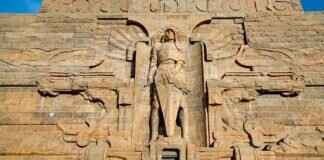Actor and politician Vijay, the Tamilaga Vettri Kazhagam president, has taken a bold step by challenging the constitutional validity of the Waqf legislation in the Supreme Court. This move comes amidst a wave of petitions challenging the Waqf (Amendment) Act, 2025, including one filed by All India Majlis-e-Ittehadul Muslimeen (AIMIM) leader Asaduddin Owaisi. The Supreme Court, led by Chief Justice of India Sanjiv Khanna, is set to hear more than a dozen petitions, shedding light on the contentious nature of the amendments made to the Waqf Act.
A Diverse Range of Challengers
This legal battle has attracted a diverse range of challengers, showcasing the widespread concerns surrounding the new legislation. Alongside Vijay and Owaisi, petitions have been filed by prominent figures such as AAP MLA Amanatullah Khan, the Association for the Protection of Civil Rights, and various religious organizations like Jamiat Ulama-i-Hind and Samastha Kerala Jamiathul Ulema. The petitions collectively highlight the deep-seated objections to the amendments that have sparked heated debates and opposition in both Houses of Parliament.
Key Concerns and Criticisms
The core objections raised by the petitioners revolve around the arbitrary nature of the amendments, which are perceived as discriminatory and exclusionary. AIMPLB spokesperson SQR Ilyas has strongly criticized the amendments as a blatant violation of fundamental rights enshrined in the Constitution, particularly Articles 25 and 26 that guarantee religious freedom and the right to manage religious endowments. The petitions also underscore the overarching concern that the government’s amendments seek to exert undue control over Waqf properties, thereby infringing upon the autonomy of the Muslim community in managing their religious assets.
In addition to political figures and religious bodies, the legal challenge has drawn in the Association for the Protection of Civil Rights, an NGO that has raised constitutional concerns over the legislation. AAP MLA Amanatullah Khan, in his plea, has emphasized the violation of multiple constitutional articles, highlighting the far-reaching implications of the new law on the Muslim community’s rights and autonomy. The diverse array of challengers underscores the widespread opposition to the amendments and the urgent need to address the underlying issues that have sparked this legal battle.
The controversy surrounding the Waqf (Amendment) Act, 2025, has not only ignited legal challenges but has also sparked a broader debate on the protection of religious rights and freedoms. The upcoming hearings in the Supreme Court will serve as a critical juncture in determining the fate of the legislation and the implications it holds for the Muslim community and religious organizations across the country. As the legal battle unfolds, it will be essential to closely monitor the proceedings and the arguments put forth by the petitioners to understand the complex dynamics at play and the potential ramifications of the legal challenge.














